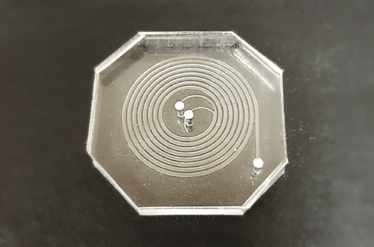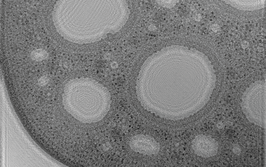A Chip for Liquid Biopsy
A new microfluidic chip analyzes urine samples to detect prostate cancer cells.

Credit: Alina Kapitannikova
This microfluidic chip is designed to analyze urine for the presence of prostate cancer cells. Developed at Russia’s Sechenov University, the chip separates large cancer cells from smaller, lighter benign cells present in urine. In pilot experiments, the chip correctly detected prostate cancer in 12 of 14 patients and confirmed its absence in 11 of 14 healthy volunteers.

While obtaining degrees in biology from the University of Alberta and biochemistry from Penn State College of Medicine, I worked as a freelance science and medical writer. I was able to hone my skills in research, presentation and scientific writing by assembling grants and journal articles, speaking at international conferences, and consulting on topics ranging from medical education to comic book science. As much as I’ve enjoyed designing new bacteria and plausible superheroes, though, I’m more pleased than ever to be at Texere, using my writing and editing skills to create great content for a professional audience.




















